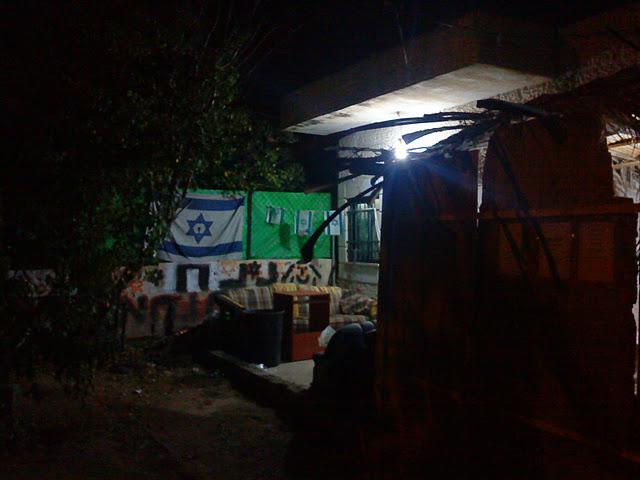Tag: Sheikh Jarrah
-

Eid in Sheikh Jarrah
by Wahed Rajol 7 November 2011 | International Solidarity Movement, West Bank ISM has maintained a daily presence at the al-Kurd residence in Sheikh Jarrah since August 2009 when Israeli authorities paved the way for Israeli settlers to occupy the front part of the family home. On the first night of Eid al-Adha, on November…
-

Welcome to the settler party
by Jenna Bereld 28 October 2011 | International Solidarity Movement, West Bank As I pass, my Palestinian scarf is hidden in my bag – I do not want to get any spit on me tonight. Around the tomb of Shimon HaTzadik, the festival is going on. The settlers have built a stage, erected a huge…
-
The graffiti battle of Sheikh Jarrah
28 September 2011 | International Solidarity Movement, West Bank While Palestinian families continue to defend their right to reside in their homes in East Jerusalem, and while illegal Israeli settlers attempt to overtake whatever home or land to feed their colonial appetite, a different struggle is taking place on the walls of Sheikh Jarrah. As…
